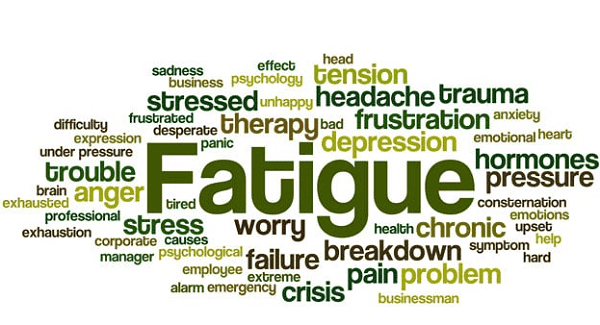Fatigue is a common problem that affects people of all ages and genders. It can be caused by a variety of factors, such as an improper nutrient diet, over-exercising, over-weight, stress, lack of sleep, medical conditions and more. Along with that, it also makes you feel tired and difficult to perform your daily life activities. If you want to know more about the fatigue then take a deep dive with us in our further sections of the following write-up.
In our further content we will cover some topics such as types of fatigue, its causes, symptoms, right time to see your doctor, and how your doctor will treat fatigue. Along with that, we will also cover some helpful tips that you can add in your daily lifestyle to reduce fatigue.
Types of fatigue:
There are several types of fatigue that can results in making you feel slightly different from the others. We have explained some of the most common types of fatigue, which are as follows,
- Social Fatigue or Social Burnout: It is a type of fatigue that sometimes is referred to as introvert burnout. It mainly occurs when a person has socialized to the point of being unable to do it anymore. And if we talk about the symptoms of social fatigue, then they are like, feeling unable to connect with someone, physical tiredness, irritation, low energy levels, and more.
- Emotional Fatigue: This type of fatigue can arise when a person feels depressed, sad, anger, frustration, excessive stress in their official life or personal life, and more. The human body is affected in emotional fatigue because of higher level of energy is consumed to experience these emotional feelings.
- Physical Fatigue: A physical fatigue is a type of fatigue that results in decreasing the ability of performing physical tasks or hard to do daily activities such as climbing the stairs, walking, running, and more.
- Mental Fatigue: It makes it harder for an individual to stay focused and concentrate on things. Along with that, it may also result in facing difficulty for staying awake while working at home or office.

Causes of fatigue
We have mentioned below the complete list of health conditions or daily life factors that result in fatigue problems in the human body.
Mental Health Conditions:
There are various mental health conditions mentioned below, that can push you toward fatigue problems.
- Stress
- Bereavement and grief
- Eating disorders
- Anxiety
- Boredom
- Emotional exhaustion or burnout
- Sad moments in your daily life events, such as shifting home or getting a divorce, And more.
Intake of Drugs and medication:
Several medications and drugs can also cause fatigue including,
- Blood pressure medications
- Statins and fibrates
- Proton pump inhibitors
- Benzodiazepines
- Steroids
- Antibiotics
- Sedatives
- Antihypertensive drug
- Antidepressants
- Allergy medications (Antihistamines) And more.
Consumption of harmful chemicals and substances:
If you intake or consume unhealthy or harmful substances in your daily-life, then you can face the problem of fatigue. The list of several substances are as follows,
- Consumption of high caffeinated food and drinks.
- Alcoholic beverages
- Nicotine contained products
- Sugary foods
- Soft Drinks With High Fructose Corn Syrup
- Smoothies
- Energy Drinks And more.
Endocrine and metabolic reasons:
Some of the common Endocrine and metabolic reasons that can cause fatigue are mentioned as follow,
- Thyroid problem
- Kidney disease
- Electrolyte problems
- Diabetes
- Pregnancy
- Hormonal contraception, such as birth control pills.
- Adrenal Problems
- Hypercortisolism (Cushing’s Syndrome) And more.
Heart and lungs conditions:
Bad conditions of heart and lungs can reduce the pumping ability and breath capacity of them, and due to this less blood reaches the tissues/ muscles making you feel tired. We have mentioned below the list of some heart and lungs conditions that can cause fatigue.
- Pneumonia
- Asthma
- Congestive heart failure
- Valvular heart disease such as Regurgitation, Stenosis, and Atresia.
- Dysrhythmia (abnormal heartbeat)
- Coronary heart disease
- Chronic obstructive pulmonary disease (COPD) And more.
Improper Sleep:
Given below sleep factors can also cause fatigue.
- Late night work.
- Sleep apnea
- Narcolepsy
- Insomnia (sleep disorder)
- Jet lag disorder
- Reflux esophagitis or Gastroesophageal reflux disease (GERD) And more.
Absence of essential elements for the body:
Absence or deficiency in given below elements can also lead to fatigue.
- Deficiency in Vitamins such as D, B1, B2, B3, B5, and B12.
- Low level of Iron
- Low in potassium
- Calcium
Health-related problems:
The list of given below medical conditions can cause fatigue.
- Diabetes
- Anemia
- High blood pressure
- Heart disease
- Obesity
- Massive blood loss
- Fibromyalgia
- Systemic lupus
- Chronic fatigue syndrome
- Rheumatoid arthritis
- Weak immune system
- Inflammatory bowel disease
- Cancer and cancer treatments, such as radiation therapy, chemotherapy, and more.
What are the symptoms of fatigue?
The most common symptoms of fatigue may be physical, emotional or mental health exhaustion. With fatigue, a person does not feel refreshed even after sleeping or resting. Along with that, it may also be overwhelming for them to perform their daily activities such as job work, household activities, caring of others, walking, and more.
The list of some common physical, mental, or emotional symptoms that hints towards fatigue are as follows,
- Sore muscles or aching
- Difficulty in learning new task
- Daytime sleepiness
- Headache
- Gastrointestinal problems, such as abdominal pain, constipation, bloating, diarrhea, and more.
- Slowed response time
- Irritation
- Unable to make contact with anyone or feeling introvert
- Vision problems
- Lack of motivation And more.
Right time to visit Diagnostic center:
You have to visit diagnostic center or make an appointment with your doctor if you face the given below problems along with your fatigue.
- Feeling higher body temperature.
- If you feel like you are in depression.
- Experiencing weight loss.
- Feeling yourself cold, while others around you are even too warm and comfortable. This is also known as Cold intolerance.
- Not able to sleep properly.
- If your fatigue has continued for 14 days or more.
There are some serious medical issues also, which results in fatigue. So, if you experience any of these given below symptoms, then immediately visit the hospital or diagnostic centre.
- Rectal Bleeding
- Blood in vomiting
- Shortness of breath
- Abnormal heartbeat
- Chest pain
- Severe headache
- Feeling of faintness
Diagnosis:
It can be difficult for your doctor to diagnose the fatigue directly, because the symptoms and causes of fatigue are nonspecific and varied. And if you want to know, how will your doctor treat fatigue, then we want you to clarify that, he/she may ask you some of the common questions that are given below.
- You doctor can ask the question related to the nature of your fatigue.
- Patterns of fatigue. In simple words, at which time the symptoms gets better or worst.
- Some other symptoms, if you are experiencing along with fatigue.
- Your daily activities or lifestyle habits, including the nutrient diet, caffeine consumption, alcohol consumption, sleep patterns and more.
- Source of stress and other medical problems that you have.
- List of medications you are taking.
And if, your doctor thinks that the reason behind your fatigue is any kind of medical condition, then they may ask you to take some medical tests such as blood test, urine test, and more.
Tips to treat fatigue:
We have mentioned below a list of several tips that you can add in your daily life style schedule to reduce your fatigue.
- Aim to acquire a good quality sleep by making some changes in your sleep time and nearby environment such as room temperature, lightning, no noise, and more.
- Reduce your daily screen watching time.
- Eat and drink healthy food items throughout the day.
- Consume enough fresh vegetables and fruits.
- Avoid the consumption of high caffeinated foods and drinks, especially in the afternoon and before sleep.
- Aim to lose your weight in order to gain energy.
- Increase the quantity of drinking water you throughout the day.
- Add on some exercises in your daily routine such as cardiovascular training and strength training.
- Try yoga and mindfulness meditation.
- If you have a habit of smoking then try to quit it.
- Get proper nutrition.
- Never skip your breakfast and try to eat less at night.
Wrapping Up:
In conclusion, a wide range of lifestyle factors, health, and mental conditions can lead to fatigue in human body. So, after reading through the above sections of this write-up, we will recommend you to follow the above mentioned-treatment tips, if you are facing the fatigue and sleepiness in your daily life. But in case none of these tips work, then you should make an appointment with your doctor.



















